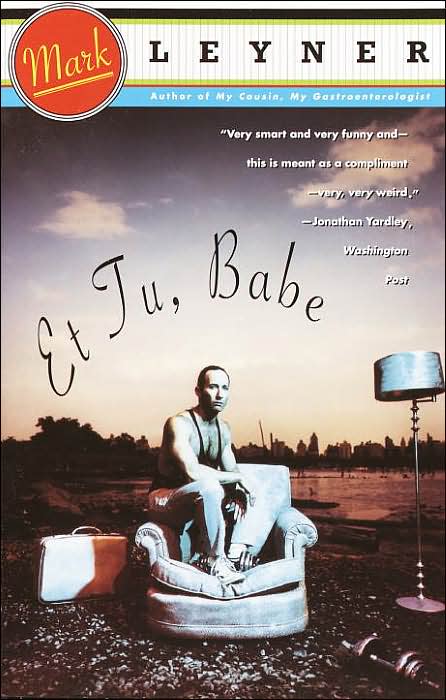
Mark Leyner
[writer]
Part I.
It has been almost fifteen years since Mark Leyner’s last novel was published. Many authors have gone longer between books—Thomas Pynchon went seventeen years between Gravity’s Rainbow and Vineland—yet most authors who have left public life did not have quite as public a persona as Mark Leyner once did.
With pages thick in perverse, pop-artifact-studded automatic writing, his 1990 collection, My Cousin, My Gastroenterologist, still reads as it did then, as a midnight movie on fast-forward, told through non-sequitur skits and saturated with advertising jargon honed from the author’s years spent as a copywriter. At his best, Leyner would go on to capture, and atomize, the Manic Panic millennialism of the Clinton era.
After Leyner’s breakout hit, he established a fictional Mark Leyner character in his novels, composed of signature riffs wedged into self-referential frameworks: Mark Leyner, world-famous author and corporate brand, in Et Tu, Babe; and thirteen-year-old Mark Leyner, literal enfant terrible, in 1997’s The Tetherballs of Bougainville. Then the one-time poet truly joined the mass media when he started writing scripts, including the divisive 2008 John Cusack film, War, Inc. Audiences expecting a sequel to Cusack’s previous assassin rom-com, Grosse Pointe Blank, instead encountered a frenzied update of Dr. Strangelove for the age of Blackwater and indeterminate incarceration.
In Leyner’s most recent novel, The Sugar Frosted Nutsack, he has created a pantheon of new gods (“The God of Dermatology,” for example) who toy with everyone from Red Sox Ted Williams’s frozen head to the novel’s central character, a paranoid mortal in New Jersey named Ike Karton. Told in a poetic, recursive style, The Sugar Frosted Nutsack is Leyner’s most complex work to date, and his most raw. For a novel about a fiction that contains all of existence, Leyner’s cosmological reality show intriguingly lacks his most famous creation: Mark Leyner.
When we met at Manhattan’s Old Town Bar last April, I knew I wouldn’t be interviewing the exact Mark Leyner from two-decades-old magazine profiles. The author I met was as much a middle-aged father—nervous and humble at the prospect of talking about his return to fiction—as he was a writer who could effortlessly weave Jersey Shore and The Iliad into an improv thesis on storytelling. —Brian Joseph Davis
THE BELIEVER: Writing about gods and myth is very much in the tradition of classic poetics, which is what you originally worked in. Going back, even before I Smell Esther Williams, when did humor creep into your writing? Baudelaire and Rimbaud are not innately funny guys.
MARK LEYNER: No, I have a feeling they were not particularly fun to hang out with. I realized, at the age you realize these things, I...
You have reached your article limit
Sign up for a digital subscription and continue reading all new issues, plus our entire archives, for just $1.50/month.
Already a subscriber? Sign in




